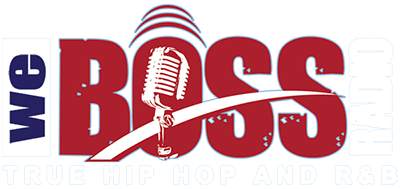
Source: Keystone / Getty
History tends to forget our heroes, especially when they’re Black. As we remember the fallen heroes of World War II on the 80th anniversary of D-Day, let us not forget the all-Black unit that helped turn the tides of war.
The 320th Barrage Balloon Battalion played a crucial role in the D-Day invasion of Normandy, yet their story is often overlooked or flat-out never told. These brave Black men were not your average soldiers. Instead of fighting on the front lines, they deployed barrage balloons to protect Allied forces from enemy aircraft bombings. The 320th Barrage Balloon Battalion contributed to the invasion’s success and their technical expertise would contribute to advancing U.S. military technology. But, who were these men and how did they become some of the most important people during World War II? In this article, NewsOne explores the untold story of the 320th Barrage Balloon Battalion and how their legacy and achievements should never be forgotten.
After the First World War, the U.S. military began to strategize ways to defend its bases and soldiers from aerial attacks and in 1923 they began to develop barrage balloons. These balloons served as a buffer between soldiers on the ground and enemy aircraft flying above. Their job was to prevent enemies flying overhead from being able to get close enough to bomb Allied soldiers.

Source: Mirrorpix / Getty
From Smithsonian:
If an enemy aircraft was determined to attack, the balloons forced them to fly at higher altitudes (to fly over the balloons) making them more susceptible to larger caliber anti-aircraft gunfire. The balloons themselves could also destroy enemy aircraft, especially at night: the cables that anchored the balloons to the ground were very difficult to see and posed a risk to any aircraft that flew into them. An aircraft caught in a cable could be slowed down enough to stall or have a wing torn off.
In 1941, the Japanese attack on Pearl Harbor kicked the barrage balloon program into hyperdrive, and by the end of 1942 the program was ready for new recruits. Enter the 320th Barrage Balloon Battalion.
A training base for barrage balloon battalions called Camp Tyson was created in Paris, Tennessee, and Black recruits were moved to the newly built camp to begin training. The camp would produce over 30 barrage balloon battalions, including four comprised entirely of African American recruits: the 318th, 319th, 320th and 321st Barrage Balloon Battalions, according to the Air And Space Museum.
Training for the battalions was strenuous. Recruits had to learn skills needed to the balloons during combat. The balloons, which were about 35 feet in length, were known as very low altitude (VLA) balloons, only operating below 2,000 feet. Recruits needed to learn how to camouflage the balloons, repair them and maintain them while on the battlefield.
On D-Day, units from the 320th landed on both Omaha and Utah beaches. They were the only Black combat unit to do so as they did everything they could to achieve their mission.
“If you look at pictures of the D-Day beachhead and you see barrage balloons there, they were manned by three to five black troops from the 320th,” said Jonathan Bernstein, Army Air Defense Artillery Museum director. “The first Soldiers from the battalion landed on Omaha Beach at 9 a.m., two hours after the invasion began. The first balloon was floated at 11:15 p.m. that night, and by the next day all of their balloons were knocked out by German artillery fire. But, they were resupplied and were able to quickly float new balloons.”

Source: Galerie Bilderwelt / Getty
By the night of June 7, 20 balloons were successfully floating above Omaha Beach and another 13 over Utah Beach. The balloons would continue to get shot down throughout the invasion but were always quickly replaced by the brave men of the 320th.
The Battalion served for almost 150 days in France following the invasion, according to the Air And Space Museum.
Supreme Commander of the Allied Expeditionary Forces in Europe General Dwight D. Eisenhower would eventually recognize the 320th Barrage Balloon Battalion’s critical contributions to the D-Day invasion, but history hasn’t done a good enough job remembering these heroes.
They played an important role in helping end the German control of Europe and their legacy is way too important to forget.
Idris Elba is doing his part to keep the legacy of the 320th Barrage Balloon Battalion alive. The actor, whose grandfather fought in World War II, narrated and executive produced a four-part National Geographic docuseries called Erased: WW2’s Heroes of Color.
Elba said the experience working on the docuseries really positively impacted him.
“It really did actually impact me just in the narration booth, watching the imagery, looking at the faces, wondering about my own personal connect,” Elba told AP. “Could my grandfather be one of the people in one of the pieces? That was what I thought about. So, it did definitely resonate with me.”
One of the forgotten soldiers spotlighted in the docuseries is Army medic Cpl. Waverly Woodson, Jr.
The Black medic, who was a part of the 320th Barrage Balloon Battalion, was posthumously awarded the Distinguished Service Cross, which is the second-highest military decoration that can be awarded to a member of the Army.

Source: John van Hasselt – Corbis / Getty
You can catch the docuseries on National Geographic, Disney+ and Hulu.
SEE ALSO:
The History Of The Oldest Black Community In Europe
Ireland’s Earliest Inhabitants Were Black People With Blue Eyes

The post Black History Of D-Day: The Untold Story Of The 320th Barrage Balloon Battalion appeared first on NewsOne.
The post Black History Of D-Day: The Untold Story Of The 320th Barrage Balloon Battalion appeared first on Black America Web.











